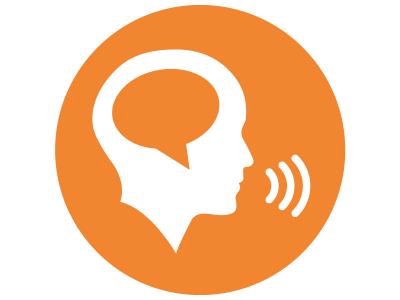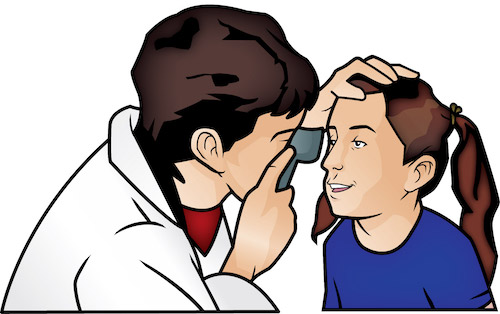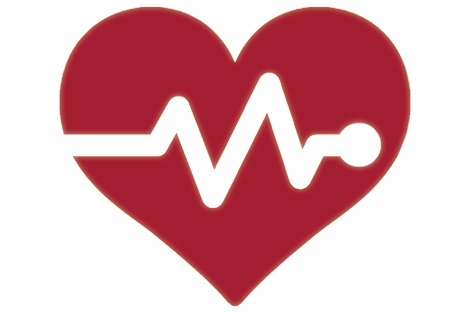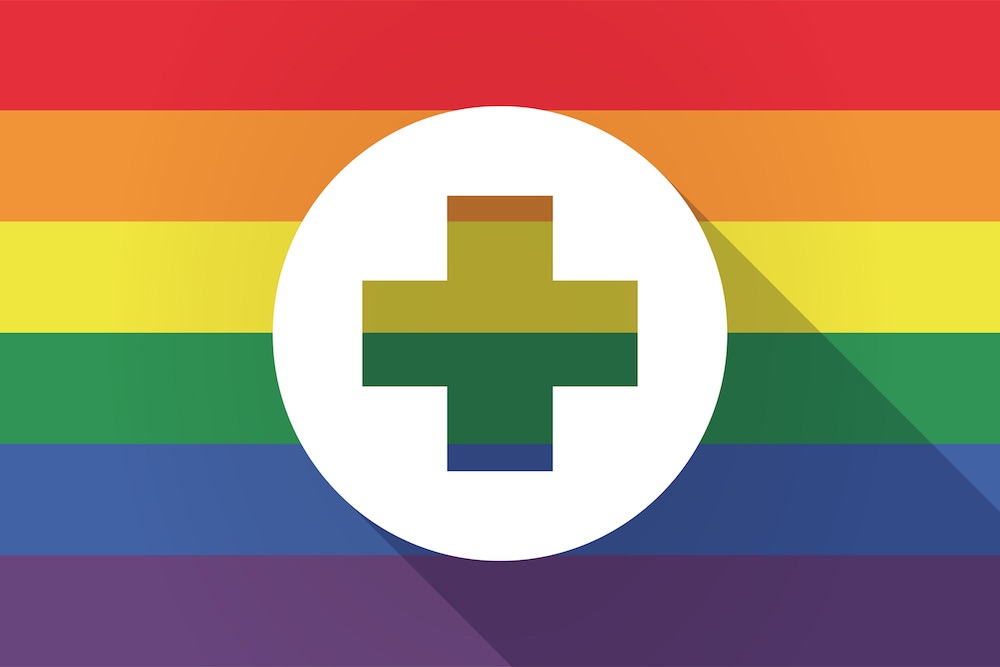The need for this resource was identified through numerous consultations with service providers and was developed by an inter-agency group that included Toronto Local Immigration Partnerships (North, South, East, and West), Toronto Newcomer Office, Hong Fook Mental Health Association, Toronto Public Health and iamsick.ca. We hope that it would be used to navigate the health and mental health systems by settlement, employment, legal and other service providers, and newcomers themselves. The tool consists of two parts: Ontario Health System Overview (info on health insurance, primary care and health promotion) and Ontario Mental Health System Overview (info on stages of care, points of access in crisis, primary care and specialty care, community supports, family and caregiver supports, housing, financial aid, patient rights and more). If you have any suggestions on how to improve the tool, kindly e-mail: [email protected]
For definitions of medical specialties, please visit: http://www.royalcollege.ca/rcdir/faces/definition?_adf.ctrl-state=nwt5mbonk_4
The Ontario Health Insurance Plan (OHIP) is a government funded health insurance program for residents of Ontario. This program provides coverage for a wide range of medical services; however, it does not pay for services that are not medically necessary, such as cosmetic surgery. The program pays directly to service providers (doctors, clinics and hospitals) where you receive medical services. Extended healthcare needs such as prescription drugs, vision care, medical supplies(such as diabetic and incontinence supplies), transportation to and from medical appointments, assistive devices(for example, hearing aids) and dental services are not covered by the OHIP and are a part of private insurance plans offered by employers or purchased individually. Please click here for a list of services NOT covered by OHIP. For more information about OHIP, click on following link: http://www.health.gov.on.ca/en/public/programs/ohip/
Canadian citizens, permanent residents, Convention Refugees, persons in need of protection, and people on valid work permit with a full time job for at least six months, are eligible for OHIP. Tourists or visitors are not eligible for OHIP coverage. You can only apply for the OHIP coverage after living in the province for three months. You must also be physically present in Ontario for 153 days in any 12-month period to be eligible for OHIP.
In order to receive OHIP coverage for medical services, an individual must present their OHIP card (also referred to as a health card) to the medical provider administering the services. To obtain an OHIP card, you need to apply in person at a Service Ontario centre
The Interim Federal Health Program (IFHP) provides limited, temporary coverage of health-care benefits to people in the following groups who are not eligible for provincial or territorial health insurance: protected persons, including resettled refugees, refugee claimants, and certain other groups. For more information,please follow this link: http://www.cic.gc.ca/english/refugees/outside/summary-ifhp.asp.
| The IFHP also covers services by clinical psychologists, occupational therapists, speech language therapists and physiotherapists (For more information, follow the link http://www.cic.gc.ca/english/refugees/outside/arriving-healthcare/individuals/treatment.asp |
If you are a newcomer, you will have to wait for three months to receive your OHIP coverage. If you are not working or if your employer does not offer you a health insurance plan you might want to purchase a private health insurance plan to protect yourself and your family during the 3-month waiting period. There are a number of private insurance providers (e.g. Manulife Financial, Blue Cross, and Great West Life). To find a private health insurance company, follow this link: http://olhi.ca/insurance/find-insurance-products/ If you cannot afford private insurance, find a Community Health Centre near you and ask for their assistance.
| As of 2014, most individual and small group health insurance plans are required to cover mental health and substance use disorder services. |
The University Health Insurance Plan (UHIP) is a mandatory health plan for all international non-residents studying or working at an Ontario university or college. If you fall into this category, your family members who are dependent on you will also be covered under the UHIP. The UHIP provides coverage for basic medical services and treatments. The cost varies depending on how many family members are dependent on you.
For more information on UHIP, its associated costs and other concerns, please click here.
You may get help with high prescription-drug costs if you qualify for the Trillium Drug Program: https://www.ontario.ca/page/get-help-high-prescription-drug-costs
There is also a new program that will start in in Ontario in January 2018 - OHIP+: Children and Youth Pharmacare. It would cover the costs of prescription drugs for everyone 24 and under regardless of family income.
Other programs that you may benefit from include:

Family doctors (or family physicians, general practitioners (GPs)) treat urgent conditions (emergencies), as well as chronic conditions in patients of all ages, from babies to elderly adults. They assess and diagnosis your condition through gathering your complete medical history, physical examination, and screening and laboratory tests, and treat it by offering medical advice, counselling, providing prescriptions for medications and/or referrals to specialists (e.g. chiropractor, cardiologist, etc.), as appropriate. Family doctors also provide care for pregnant women (prenatal care), baby/child care, assist with family planning and lifestyle changes, provide preventative health care interventions (such as vaccinations and screening for conditions like cancer and diabetes), and offer support with mental health issues (including brief counselling, medications, connecting with community resources, referrals to mental health specialists, etc.). For more information on family doctors please visit: http://yourfamilyphysician.ca/
To find a family doctor near you, please follow this link: https://www.iamsick.ca/
If you need further help finding a family doctor, you can register with Health Care Connect. This program refers you to a local doctor or nurse practitioner who is accepting new patients.
If you do not have a family doctor or have one and are unable to reach them, then walk-in medical clinics are a way to access medical care. You can get advice, assessment and treatment for minor illnesses and injuries such as cuts, bruises, minor infections, sprains and skin complaints. Walk-in clinics are also convenient for patients who need to visit a doctor after working hours since some clinics are open for extended hours or 24 hours a day.
Generally, you do not need an appointment to see a nurse or a doctor at a walk-in clinic, however, you may incur a long wait until someone is available to see you. If you have OHIP coverage please ensure to bring your OHIP card or you may incur a fee for service. For more information, follow the link: https://www.ontario.ca/page/walk-clinics
To find a walk-in clinic near you: https://www.iamsick.ca
| Walk-in counselling clinics provide brief one session counselling services, without a need to book a long time in advance. They can be helpful for many issues such as family conflict, stress, grief, depression, anxiety, relationship issues, separation, divorce or abuse. Most of the time, no appointment is required, though some clinics may require you to call ahead the same day to book appointments for that day. http://www.ementalhealth.ca/Toronto/Mental-Health-Facilities/index.php?m=heading&ID=229#442 |
If you do not have OHIP coverage (to learn more about OHIP coverage: http://www.health.gov.on.ca/en/public/programs/ohip/), you might be able to get health care services at a Community Health Centre (CHC). Services at CHCs are free or low-cost for eligible individuals. These centres are non-profit organizations that provide primary health care and health promotion programs for individuals, families and communities. Typical CHC primary care teams include physicians, nurse practitioners, nurses, social workers, health promoters, community health workers and often chiropodists, nutritionists or dietitians. To locate CHCs, follow the link: http://www.health.gov.on.ca/en/common/system/services/chc/locations.aspx
|
Community Mental Health Clinics
If you are looking for mental health services, you can visit Community Mental Health (CMH) clinics, which offer treatment and support to individuals living with mental health and addiction issues. It is preferred that individuals be referred to a CMH clinic by their family physician or other health care provider. The Canadian Mental Health Association (CMHA) provides a wide range of services and supports to individuals experiencing mental illness and their families. There are various branches across Canada. To find a branch nearest to you, visit: http://ontario.cmha.ca/mental-health/services-and-support/mental-health-services/ |
Family Health Teams are community centred primary care programs with services that are focusing on the population groups they serve. These teams consist of doctors, nurses, nurse practitioners, social workers, dietitians and other health care professionals who work collaboratively, each utilizing their experience and skills in their delivery of care, when you need it, as close to home as possible.
Each team is set up to meet the needs of the local community with focuses on chronic disease management, disease prevention and health promotion. To locate FHTs and for more information on what Family Health Teams offer, follow the link: http://www.health.gov.on.ca/en/pro/programs/fht/fht_progress.aspx
If you need information about healthy lifestyle choices in the areas of sexual health, vaccinations, addictions, and healthy growth and development, visit a Public Health Unit. Follow this link http://www.health.gov.on.ca/en/common/system/services/phu/locations.aspx to book an appointment with a Pubic Health Unit in your area.

If you are seeking immunization or information for a specific disease or you are travelling out of the country, you can find help at an immunization clinic. Most clinics are located within a larger health care organization, such as a:
Follow the link to check out Ontario routine immunization schedule: http://www.health.gov.on.ca/en/public/programs/immunization/static/immunization_tool.html.

To get help with hearing, speech, language, and swallowing problems you can refer to Public and private practitioners. However, public funding varies depending on the patient/client’s condition. OHIP can cover the following for residents of Ontario:
To book an appointment with a Public practitioner in Toronto, please follow this link: https://www.tphbookings.ca/default.aspx?PageID=11229
To find a private practitioner or service agency, the Ontario Association of Speech-Language Pathologists and Audiologists (OSLA)'s website maintains a database of providers that can be searched using a postal code. https://www.osla.on.ca/en/childirectory Please note that private services are not covered through OHIP. However, many private health insurance plans offer some coverage of speech therapy services.

To help with sexual health issues and confidential counselling, you can refer to a Sexual Health Clinic, which promotes healthy sexuality and works to reduce sexually transmitted infections (STIs). These clinics are staffed by physicians, nurses and nurse practitioners to offer free and confidential clinical services. A health card is not required to visit a sexual health clinic. They offer the following services:
Sexual health clinics may be found in Public Health Units, Community Health Centres and on many college and university campuses. You do not need a referral.

Public Health Units provide a number of programs and services that can help you make healthy choices if you are thinking of having a baby, currently pregnant or raising a child. Support includes:

People 65 years and older and those younger than 20 are covered by OHIP for a routine eye examination provided by either an optometrist or physician once every 12 months, plus any follow-up assessments that may be required. Specified ophthalmology services for patients of any age with specified medical conditions or diseases affecting the eyes are also covered by OHIP.
Eye See…Eye Learn® program provides OHIP-covered eye exams by participating local optometrists to junior kindergarten students across Ontario. If the child requires a pair of glasses, they will receive a complimentary pair (estimated at over $250) donated by Nikon Lenswear, OGI and your participating optometrist. For more information: http://www.optom.on.ca/OAO/ESEL/aboutESEL.aspx

To help you manage your diabetes, the Ministry of Health and Long-Term Care (MOHLTC) provides a variety of services and resources that include:
The Diabetes and You Tool Kit
includes fact sheets in 13 languages and videos to help you lead a healthier life. You can access it here: https://www.ontario.ca/page/preventing-and-living-diabetes
Routine Tests for Diabetes
HbA1C blood test, LDL-C blood test and retinal eye exam are routine test for diabetes. Contact your family doctor, CHC or FHT if you are not sure if you have had these tests or want to have any of these tests. It is also important to monitor your blood pressure regularly and have your feet checked by your family health care provider at least once a year.
Diabetes Passport
The Diabetes Passport records important information like key test results, medications, diabetes education sessions, and more. It is available in 16 languages. Click here for more information.
Diabetes Education Programs
These programs will help you develop life plans to help minimize your symptoms and delay or prevent the onset of diabetes complications. You will also learn self-management skills from a team of health care professionals. Ask your family doctor for a referral or find a program near you: https://www.ontario.ca/page/diabetes-education-program
Financial aid for supplies
You need to have an OHIP card to qualify for financial aid and meet additional program conditions. Click here for more information.

Canada's Food Guide provides guidelines on how much food is needed each day for different age groups: https://www.canada.ca/en/health-canada/services/canada-food-guides.html
Peer Nutrition Program: The Peer Nutrition Program is a free nutrition education program for parents and caregivers of children six years old and under. Contact your nearest Community Health Centres to find about the program.
Eat Right Ontario provides free easy-to-use nutrition information to help you make healthier food choices: https://www.eatrightontario.ca/en/default.aspx

Canadian Physical Activity Guidelines outline the amount and type of physical activity that offer health benefits for each age group. For more information: http://www.phac-aspc.gc.ca/hp-ps/hl-mvs/pa-ap/index-eng.php
Parks and Recreation Ontario helps educate the public on the importance of leading a healthy lifestyle. They have ongoing projects such as workshops, webinars and much more in helping youth to engage in physical activities: http://www.prontario.org/
There are a number of recreation centres across the country that offer swimming facilities, ice skating, basketball and other physical activities. Many of these centres offer free services. In Toronto low income families and individuals can receive access to free programs through the Welcome Policy: http://www1.toronto.ca/wps/portal/contentonly?vgnextoid=a048a4bd35341410VgnVCM10000071d60f89RCRD

The Smoke-Free Ontario Strategy has greatly reduced tobacco use and lowered health risks to non-smokers in Ontario. To find resources to help you quit smoking, please visit: https://www.ontario.ca/page/support-quit-smoking?_ga=1.204085520.1495441943.1478460654

Chronic diseases such as cardiovascular disease, cancer, respiratory disease and diabetes are the leading cause of death and disability in Ontario. Public Health Ontario uses the latest research to help clients in preventing chronic diseases. Click here to find out more information.

The Ontario Injury Prevention Resource Centre provides many services across Ontario, including:
Click here to visit the Ontario Injury Prevention Resource Centre.

If you identify as a LGBTQ, the province of Ontario has created programs to help you in leading a healthy life. Some of the services include trans health care, monitoring temporary and chronic illness, counselling, workshops. These services are covered by OHIP, however if you do not have an OHIP card, you can still receive free services at certain locations. There are also specific centres aimed at helping LGBTQ clients with mental health problems, substance abuse and obesity. Click here to visit Rainbow Health Ontario and find more information. If you are in Toronto, please click here for services offered by the Sherbourne Health Centre.